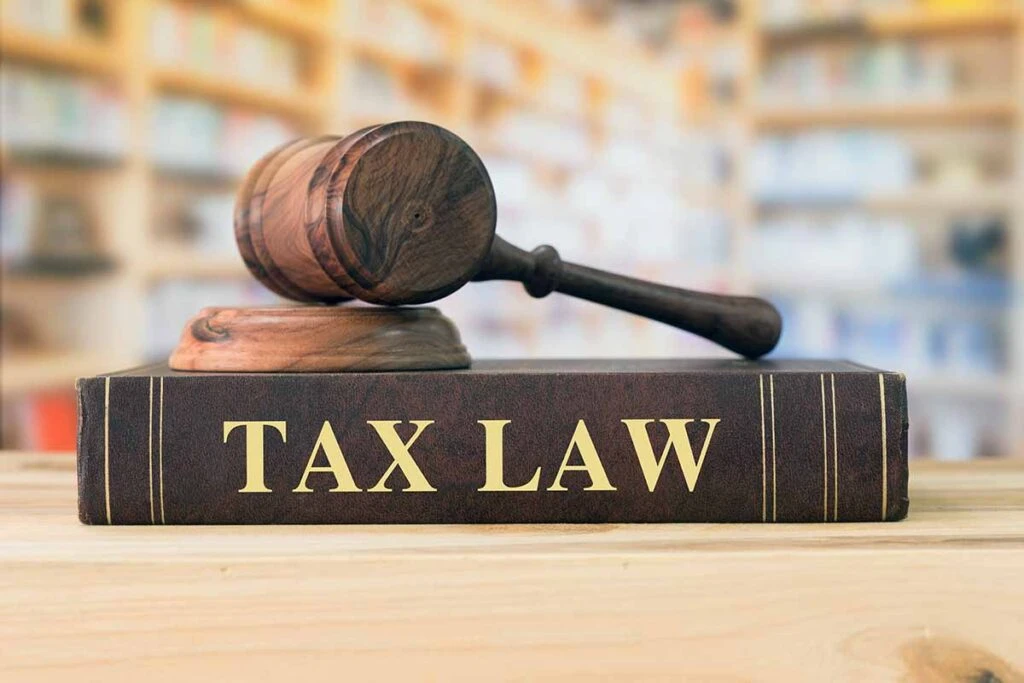Georgia Overview of Solutions and Consequences

The Georgia Department of Revenue administers and collects personal and business taxes in the state of Georgia. When you file tax returns in this state, you file them with the GA DOR. This is also the agency you must contact if you want payment options on your tax bill.
Are you behind on your Georgia taxes? Looking for help? Then, check out this guide to Georgia taxes, or contact us at the W Tax Group today. We can help you deal with the GA DOR as well as any other state tax agencies and the Internal Revenue Service.
How to Pay Georgia State Taxes
You can mail a check or money order to the DOR to pay your taxes. You can also pay online using ACH or a credit card. The GA DOR website has links to payment options. If you cannot afford to pay the full bill at once, check out the following options.
What If You Can’t Afford to Pay Your Georgia Tax Bill?
If you can’t afford to pay your state tax bill, don’t ignore it. Ignoring your tax liability will lead to penalties and interest on your account. The state may also enforce collection actions such as garnishing your wages, taking money from your bank account, or seizing your assets.
Luckily, the Georgia Department of Revenue has many options for taxpayers who can’t afford to pay in full including the following:
Monthly Payment Plans
Both individuals and businesses can set up monthly payment plans on GA back taxes. You can take up to five years to pay, but your payments must be at least $25. To qualify, you must have filed the last five years’ worth of returns. You also cannot be in bankruptcy or have an offer in compromise pending with the state.
When you set up payments, the state will stop most collection actions against you. However, interest and penalties will continue to be added to your account. The DOR may also keep your state tax refunds until your bill is paid in full.
Tax Debt Settlements
In Georgia, qualifying businesses and individuals may be able to settle their taxes for less than they owe through the state’s offer in compromise program. You can apply online or through the mail, but in both cases, you must submit very detailed information about your personal and/or business finances. Generally, the GA DOR will only accept a settlement offer if it includes most of the equity in your assets and your disposable income.
How to Reduce Your Georgia Tax Bill
To reduce your balance, ask the DOR to remove penalties from your account. Generally, the agency will remove penalties if you have “reasonable cause” which simply means that you have a very good excuse for filing or paying late. This includes deaths, serious illnesses, natural disasters, or similar situations.
As indicated above, you can also apply to reduce your GA tax bill through an offer in compromise. However, this program has strict application criteria.
What If You Disagree With Your Tax Liability
The GA DOR has a few different options for people who disagree with their tax liabilities. These programs are not for people who just disagree with taxation in general. In fact, if you apply based on a frivolous claim, you may incur penalties.
To qualify for the following programs, you must have a legitimate reason why the tax assessment is incorrect or why you shouldn’t be liable for the tax. Here are the main options:
- Tax appeals — You have 30 days to appeal tax assessments with the Georgia Tax Tribunal. You cannot appeal proposed taxes. You must wait until they are assessed.
- Tax settlement based on doubt as to liability — If the window for appealing an assessment has passed, you may be able to apply for a settlement based on doubt as to liability.
- Innocent Spouse Relief — If the tax bill on a joint return is due to actions your spouse took without your knowledge, you may be able to get relief. Typically, you can qualify in GA if you get approved for innocent spouse relief on the federal level.
What Happens If You Don’t File Tax Returns In Georgia?
Failure to file a tax return can lead to severe penalties. The penalty for not filing can get up to 25% of your bill. Penalties are even more severe if you don’t file business taxes such as withholding tax or sales tax that you collected.
The state offers a Voluntary Disclosure Program to help individuals and businesses who haven’t filed. To qualify, you must not have been contacted by the state. You must reach out to the state about the unfiled returns before the DOR contacts you.
When you use the voluntary disclosure program, you can avoid penalties as long as you file and pay within a certain amount of time. Generally, you only need to file the last three years of returns, but the DOR can make you file additional years at its discretion.
What If You Don’t Pay Your Georgia State Taxes
If you don’t pay your taxes, you will face interest and penalties on your balance. The state may come after your wages or seize your assets. Here are the consequences of not paying.
Penalties
If you file late, the DOR will charge a penalty of 5% of the tax you owe. If you file but don’t pay, the penalty is only 0.5% of the tax. Both of these penalties are assessed monthly. They can each get up to 25% of your tax bill, but the total combined is only 25%.
Here’s an example, imagine that you file three months late, but you don’t pay the tax bill until two years after the due date. The late filing penalty will be 15% of the tax bill. That’s 5% per month for three months. On top of that, the late payment penalty will be 1/2% per month for 20 months. At this point, the late payment penalty is 10% of your balance. Because you have reached the 25% cap on these penalties, you won’t incur a late payment penalty for the following months.
The DOR charges several other penalties for various situations. For example, underpaying tax due to fraud can lead to a 50% penalty of the underpayment. For instance, if you file a GA state tax return that underreports your tax bill by $10,000, the penalty can be $5,000.
If you don’t pay on time, interest will also accrue on your tax bill. The state’s interest rate is the prime rate plus 3% which is the same rate used by the IRS.
Georgia State Tax Liens
If you don’t pay your state tax bill, the GA DOR can issue a state tax lien. This usually doesn’t happen until you are at least 30 days late
Also called a state tax execution, the lien is a public record and it attaches to all of your assets. The lien stays attached to the assets if you die or transfer ownership. If you sell an asset, the proceeds of the sale (up to the tax debt plus collection costs) go to the state. The DOR does not have to notify you before filing a tax lien.
Collection Fees
When the GA DOR files a tax lien against you, it will also add a 20% collection fee to your account. For instance, if you owe $10,000 before the lien is filed, the collection fee will be $2,000. To avoid this fee, make arrangements to pay your tax debt before the state issues a tax lien.
Tax Levies in GA
A levy or seizure is when the state takes your assets. The tax lien lays the legal foundation for this process to start. Once a lien has been issued, the state can seize the following: wages, bank accounts, and assets. Typically, seizures happen in that order.
Jeopardy Assessment
Usually, the state must give you ample warning before it takes collection actions against you. However, if a DOR employee believes that you may be leaving the state or hiding your assets to evade paying taxes, they can issue a jeopardy assessment. This allows the DOR to move forward with collection actions without warning.
FAQs About Georgia Taxes
To help you out, we’ve put together answers to some commonly asked questions about Georgia taxes. If you have additional questions, contact us directly.
What if the DOR took my refund for my spouse’s debt?
This may happen if your spouse owes child support or a tax debt from before you were married. The DOR doesn’t offer a specific program to help people in this situation. However, the IRS offers injured spouse relief to help people whose refunds have been taken due to their spouse’s debts. If you get injured spouse relief from the IRS, contact the GA DOR to see if they will also give you relief.
What if the DOR refuses to issue my tax refund?
If the DOR denies your claim for a refund, you also have the right to appeal or protest. You can appeal up to two years after the refund was denied. If you protest, you have 30 days after the protest decision to appeal.
What If I File Bankruptcy When I Owe Taxes in Georgia?
In some cases, you can eliminate taxes in bankruptcy, but it depends on the situation. Talk with your bankruptcy attorney to see if you can include your state taxes in your bankruptcy claim. Generally, only certain types of taxes that are a certain age qualify. You cannot include taxes that were not assessed until after the bankruptcy.
Note that even if taxes are discharged, any tax liens that were issued before the bankruptcy will continue to stay in effect. This means that the DOR cannot collect your tax through wage garnishments or similar actions, but it may be able to seize property based on the tax lien.
When you file bankruptcy, a stay will be issued that stops creditors from taking action against you. The stay prevents the DOR from garnishing wages, seizing assets, or taking other collection actions. However, the agency can still audit your tax returns, demand that you file unfiled returns, issue notices about your tax debts, and seize your tax refund for unpaid taxes
Get Help With Georgia Back Taxes
Dealing with back taxes in Georgia? Can’t afford to pay your tax bill? Trying to get caught up on state returns? Then, we can help. At the W Tax Group, we work closely with our clients to customize a solution that helps them end their tax problems.
We know that having tax debt can be very stressful, and we are here for you. To learn more, contact us at the W Tax Group today. We help clients with the IRS, the GA DOR, and all other state tax agencies.


